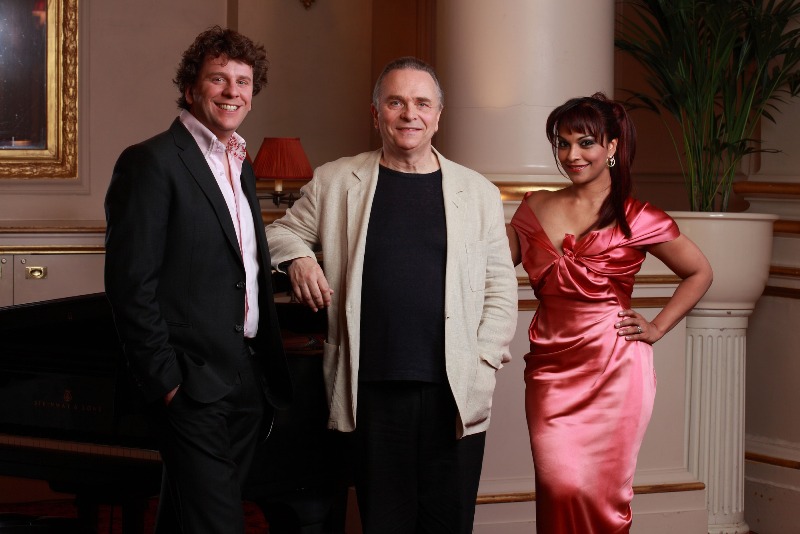Even in this age of desperate reality TV, you have to have doubts about any show that tries to convert “celebrities” into serious contenders in an alien field. Is it serious or a padded-out joke? To an extent we’ve been here, or close by, before. Can it be four years since the first Maestro came to our screens, featuring eight celebrity contestants vying for the chance to wield the baton at the Proms and, eventually, launching the winner, Sue Perkins (narrator this time), on a new career as a comedy conductor?
On the basis that if it worked once as a novelty, it might work again given a decent interval, the BBC have dusted down the formula and given it an extra gear. Last time the contestants “only” had to conduct an orchestra at the Proms. This time it’s opera - an aria in the Royal Opera House, no less. Even the judges are vying for celebrity status. What is Sir Mark Elder as host and chairman of the judges doing in this malarkey? I’m all for building bridges between the cultural elite and the popular, but I’d rather keep Sir Mark for what he does best – conducting the Halle Orchestra (and others) and opera proper.
The problem with the show is basic: what is the point and who cares anyway?
Anyway, in this first of three programmes, we got to meet the celebs – the effervescent singer/actor Josie Lawrence, the Oxford Maths Professor Marcus du Sautoy (also seeking TV popularity), choreographer Craig Revel Horwood (Strictly Come Dancing‘s Mr Grumpy, aiming to exhibit some humility) and Trevor Nelson, the Radio 1 DJ who thinks classical music is posh. Throw into the mix a few other celebs, like Lesley Garrett, enthusing about the genre, and Sir Antonio Pappano, intermittently giving some constructive narrative, and you get a bit of top-spin. Mind you, in this muddled production, director Sam Grace dispensed with them part way through.

Each was given an aria to work on – and perform. Lawrence, a conductor feeling for the singer and the song, tackled the "Habanera" from Carmen. Nelson took a minimalist and detached approach to "O mio babbino caro" from Gianni Schicchi. Du Sautoy, likened to “an axe murderer” by the Purcell tutor, seemed to take Donizetti’s Lucia seriously, though somewhat cold and scientific. And. predictably, Revel Horwood was camp and extravagant with "The Toreador Song" from Carmen.
The climax was, of course, the firing of one of them, rather like The Apprentice, though not as gripping. The judges went into a huddle. There was a hush in the hall. Elder pronounced du Sautoy and Revel Horwood to go forward. The orchestra voted between the other two: Lawrence survived, Nelson got fired. And, in true pop style, there was much whooping from the audience.
But the problem with the show is basic: what is the point and who cares anyway? In that sense, for this viewer at any rate, the supposed competitive element is missing. It’s only supposed to be an hour of light entertainment at the end of the week. But the opera world deserves much better representation than this.














Add comment